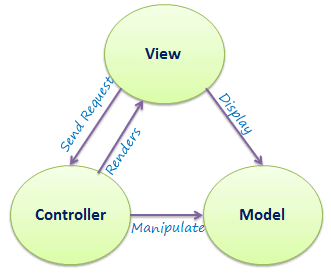Simple authentication micro-service using Python Flask, Pytest and a cloud-native methodology
The aim of this project is demonstrating how a cloud-native microservice has been developed using the 12-factor methodology.
The 12-Factor methodology is an influential pattern to designing scalable application architectures. The twelve-factor methodology can be applied to apps written in any programming language, and which use any combination of backing services (database, queue, memory cache, etc). For details about the 12-facor methodology, refer to 12-Factor methodology .
The table below describes some factors of the 12-factor which are implemented in this project:
| Number | Factor | Codebase | Implemented |
|---|---|---|---|
| 1 | Codebase | This application contains only one repository and is tracked in Git. | ✅ |
| 2 | Dependencies | Required packages are clearly stated in the requirements.txt file. | ✅ |
| 3 | Config | All the service configs are read from the enviroment variables. | ✅ |
| 4 | Backing Services | The service is attached to it's database by a URL. | ✅ |
| 5 | Build, Release, Run | Build, release and run stages of the service are seperate | ✅ |
| 6 | Processes | The serivce is stateless and stores nothing in the service memory or disk | ✅ |
| 7 | Port binding | The service is self-contained and bound to a specific http port | ✅ |
| 8 | Concurrency | The service can be run by multiple workers and scale horizontally | ✅ |
| 9 | Disposability | The service does not support graceful shutdown | ❌ |
| 10 | Dev/Prod Parity | The service is deployed in containers so Dev/prod parity is achieved | ✅ |
| 11 | Logs | Logs are written to stdout of the process | ✅ |
| 12 | Admin Processes | Migration scripts are run in such a way | ✅ |
Python Flask and Pytest are used for web-service and test-case development respectively.
Flask in a popular, extensible web micro-framework for building web applications with Python. The example below shows how easy one can create an API by Flask with only a few lines of code.
from flask import Flask
app = Flask(__name__)
@app.route('/')
def hello_world():
return 'Hello, World!'
if __name__ == '__main__':
app.run()
Pytest is a popular Python testing framework which can scale to support complex functional testing for applications and libraries. By integrating Pytest and another library named Coverage, code coverage of the apllication can be measured.
The design pattern which this service is based on is Model-View-Controller (MVC). MVC is an architectural design pattern which divides an application into three main logical components:
It is the application's dynamic data structure, independent of the user interface. It directly manages the data, logic and rules of the application.
The View component is used for all the UI logic of the application and defines what the user can see on te UI.
The controller acts as the link between the view and model to process all the business logic and incoming requests, manipulate data and interact with the View.
First, pull the repository and install required packages in a Virtualenv.
git pull https://github.com/saeedhosseini21/AuthService.git
python -m venv venv
source venv/bin/activate
pip install -U pip & pip install -r requirements.txt
The service default database is MYSQL. Pull a MySQL docker image from Docker-hub and run it:
docker pull mysql:8
docker run --rm -it --name mysql -e MYSQL_ROOT_PASSWORD=my_password -e MYSQL_DATABASE=my_database -p 3306:3306 mysql:8
Set proper password and database name in the docker run command enviroment variables.
Set this enviroment variable based on the password and database name set before:
export TECHLAND_AUTHZ_DATABASE_URI=mysql+pymysql://root:my_pasword@localhost:3306/test
Migrate the database and then run the service:
flask db upgrade
flask run
Run this command and you should get a http code of 200.
curl -H 'Content-Type: application/json' localhost:5000/api/v1/users
The authentication currently supports GET, POST, DELETE, UPDATE methods for user reource and GET, POST for JWT token.
curl -H 'Content-Type: application/json' localhost:5000/api/v1/users -d '{"username":"saeed", "password":"123456"}'
curl -H 'Content-Type: application/json' localhost:5000/api/v1/users
curl -H 'Content-Type: application/json' localhost:5000/api/v1/user/<user_id>
curl -X PATCH -H 'Content-Type: application/json' localhost:5000/api/v1/user/<user_id> -d '{"password":"test", "oldpassword":"123456"}'
curl -X DELETE -H 'Content-Type: application/json' localhost:5000/api/v1/user/<user_id>
curl -v -H 'Content-Type: application/json' localhost:5000/api/v1/auth -d '{"username":"saeed", "password":"123456"}'
curl -H 'Content-Type: application/json' -H 'X-Subject-Token:<token-talue>' localhost:5000/api/v1/auth
For running the service as a container, First the docker image must be created:
make build
Run the container:
docker run --rm -it --name authz -p 8080:8080 -e TECHLAND_AUTHZ_DATABASE_URI=mysql+pymysql://root:123456@<docker-IP>:3306/test authz:latest
Test if the service is running properly:
curl -H 'Content-Type: application/json' localhost:8080/api/v1/users
To run the unit-tests, first run the service:
docker run --rm -it --name mysql -e MYSQL_ROOT_PASSWORD=my_password -e MYSQL_DATABASE=my_database -p 3306:3306 mysql:8
export TECHLAND_AUTHZ_DATABASE_URI=mysql+pymysql://root:my_pasword@localhost:3306/test
flask db upgrade
flask run
Run the unit-tests:
coverage run -m pytest
If no test fails, the test result will be like this:
To see the code-coverage of the service, go to /authz/htmlcov and open the index.html file. As you can see in the image below, the current code-coverage of this service is 80%.
You can fork this project and develop new features.
Copyright 2022 Saeed Hosseini [email protected]





